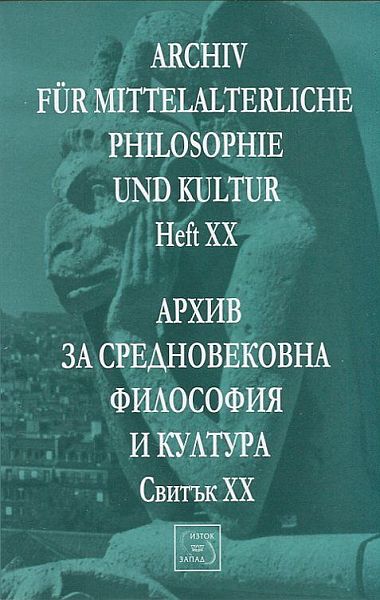Was sich dem Denken entzieht
What Eludes Thinking
Author(s): Andreas SpeerSubject(s): Metaphysics, Epistemology, Ancient Philosphy, Philosophy of Middle Ages
Published by: Издателство »Изток-Запад«
Keywords: thinking;epistemology;theory of knowledge; medieval philosophy; Albert the Great; Thomas Aquinas; Bonaventure; Mester Eckhart; phenomenology of concealment
Summary/Abstract: It belongs to the peculiarity of reason, that its principle eludes our thinking in which reason manifests itself. The problematic accessibility of what should be most evident for our thinking leads to a phenomenology of concealment. But how then can thinking begin, how can its foundations be laid? This motif marks the beginning of philosophy: e.g. in Plato’s Republic and in Aristotle’s Metaphysics. The essay traces the intellectual work on this motif of concealment of what is best known per se and the associated problem of the foundation of thinking following the discourse in Latin philosophy in the 13th–15th century. Taking the example of Albert the Great, Thomas Aquinas, Bonaventure, Meister Eckhart and Nicholas of Cusa we can perceive very different answers to this question. Cusanus calls the attempt to capture what eludes our thinking the hunt for wisdom, which originates from the natural desire of human reason.
Journal: Архив за средновековна философия и култура
- Issue Year: 2014
- Issue No: 20
- Page Range: 9-28
- Page Count: 20
- Language: German, Latin
- Content File-PDF

